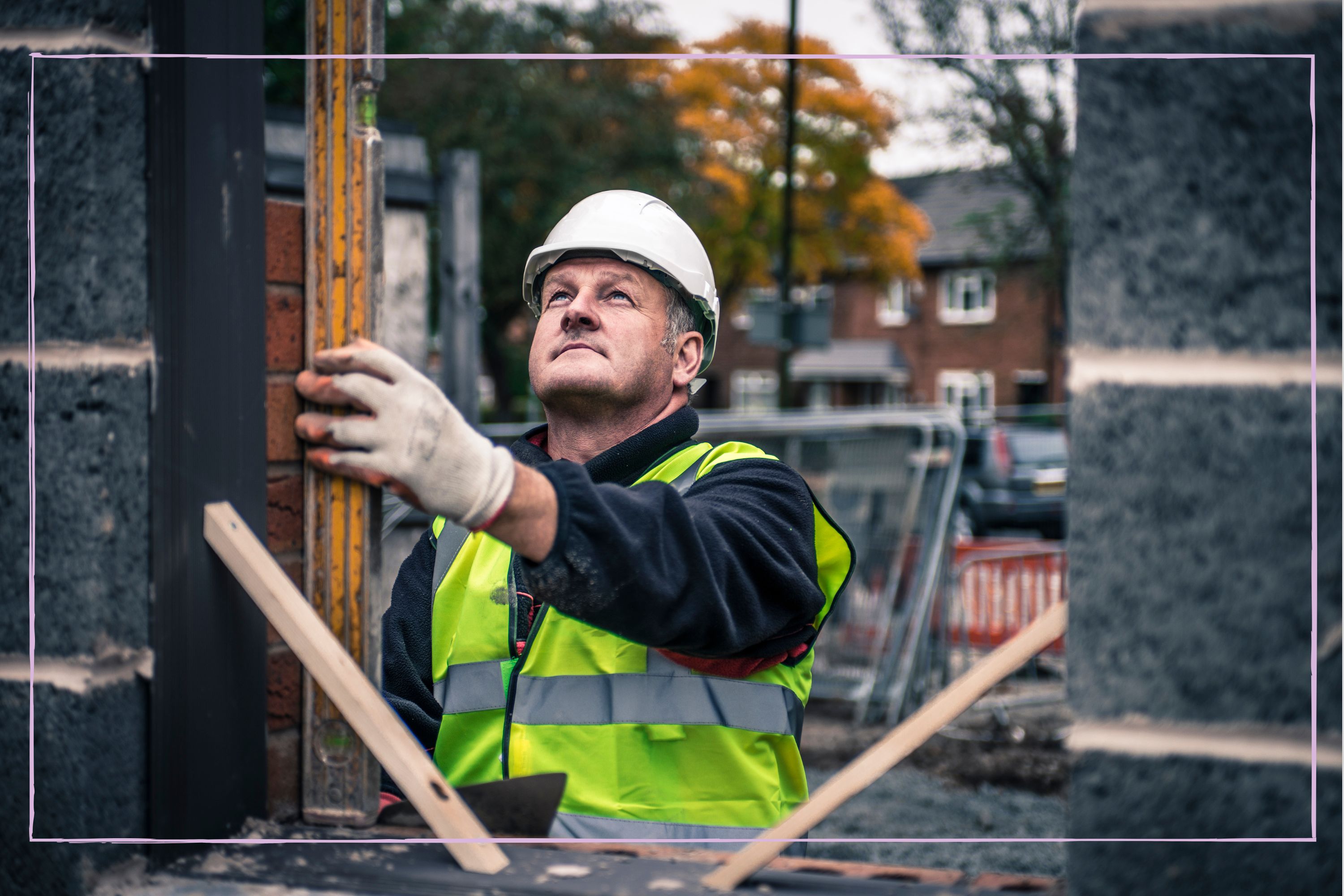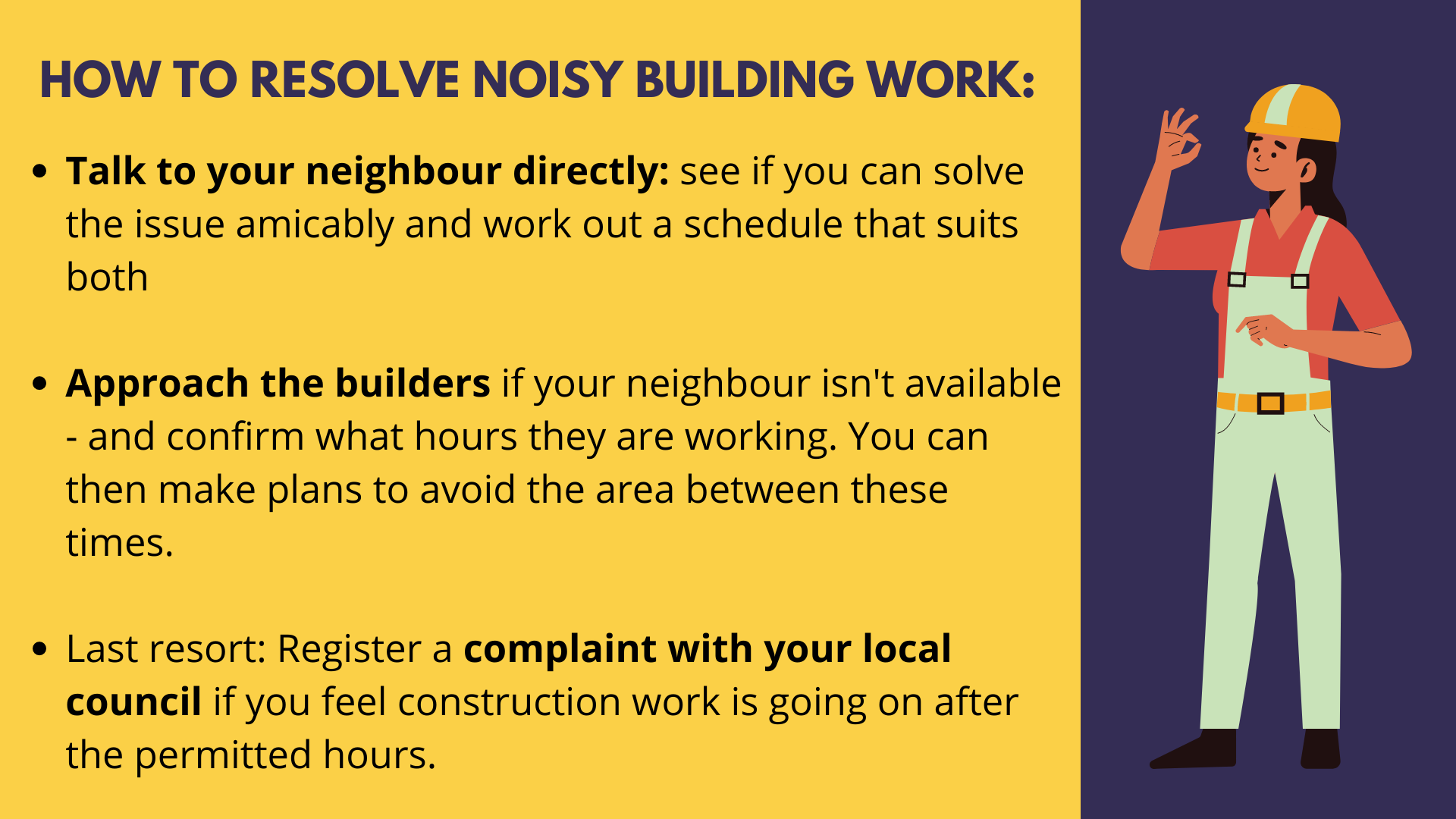What time can builders start work in the UK? Plus what you can do about noisy building work from next door
Noisy builders got you in a tizz?


Finding your mornings disturbed by noise from building work next door or along the street? You might be wondering what the law says about what time builders can start work in the UK.
Builders famously start work early in the morning. This is so they can get as much work done as possible during daylight hours. While this is ideal for those having renovation work done, it tends not to be so great for the neighbours, especially if you find yourself waking up early in the morning because of the noise.
We all know that sleep is important, but builders have got to get their job done too. So what time are builders allowed to start work? And if the noise becomes an unbearable nuisance, what can you do about it?
What time can builders start work in the UK?
Timings differ across the country, but the standard time builders can start work is from 8am, Monday to Saturday. Builders can enter the site and begin to prepare for the day earlier than 8am - they just musn't start work before this time.
Generally, builders are permitted to work between 8am-6pm from Monday to Friday and 8am-1pm on Saturdays. The time that builders can start work all depends on what local authorities decide. This has been the case since 1974 when the Control of Pollution Act gave them the power to control work noise coming from building and demolition sites.
Check your local authority's website for information on what time builders can start work in your local area if concerned.

What time can builders start work on Sunday?
It is illegal for any building work to take place on Sundays. Similarly, builders are prohibited from working on Bank Holidays.
Parenting advice, hot topics, best buys and family finance tips delivered straight to your inbox.
'Noisy work' includes the use of certain machinery. Builders and others tradespeople can't use hand tools outside of working hours or on a Sunday. They also can't use power tools like drills, cement mixers and generators outside of these hours either.
Builders and other tradespeople can't erect or dismantle scaffolding or partition walls outside of these hours, as the process can produce lots of noise for the neighbours.
Are the rules the same for DIY at the weekend?
No, local authorities can only impose these time restrictions on professional builders and contractors. As such, people doing odd DIY jobs at home are not restricted to these working hours.
This being said, it's hoped that those doing DIY projects choose an appropriate time to carry out the work - for the sake of their neighbours.
Whilst there is no legislation in place for DIY by local authorities, most recommend following national guidelines. The National Society for Clean Air and Environmental Protection calls for noisy work to take place between 8am-7pm throughout Monday to Sunday and 10am-5pm on Sundays.
What you can do about noise from building work next door:
If the noise from building work next door or on your street occurs outside of the hours that builders should start or finish work then you can make a complaint to your council. Most councils will advise you to try and talk to your neighbour directly about the noise issue first. They'll want you to try and resolve it between you before the council becomes involved.
If you believe that the work isn’t happening at the appropriate time, you can make a complaint to the council. Councils can serve a notice on those carrying out the construction or demolition work. They'll tell them how they can do the work while avoiding a possible statutory noise complaint (which comes with a hefty fine - up to £20,000 in England, Wales and NI).
The neighbours who have employed the builders for work on the property, or the builders themselves, should give you advance notice of any work and let you know how long it will last for.

However, there is no law stopping people having work on their home. So if builders are creating lots of noise and it's disturbing you, but it's during the permitted hours, the best course of action is to ask your neighbour what work is going on and how long it will last for.
This will help you to plan ahead for potential disruptions and, if there is due to be particularly disruptive noise such as drilling during the day, you could aim to be away from the house when the noisiest work is being carried out.
If you have a specific reason why you don't want the work to happen on a certain day or time, maybe because you have an important call for work, children studying for exams or a baby that can't get to sleep, then you could also try coming to an agreement with your neighbour and their builders about certain days or times when the noisiest of the work could take place to cause the least disruption.
Video of the Week:

Emily Stedman is the former Features Editor for GoodTo covering all things TV, entertainment, royal, lifestyle, health and wellbeing. Boasting an encyclopaedic knowledge on all things TV, celebrity and royals, career highlights include working at HELLO! Magazine and as a royal researcher to Diana biographer Andrew Morton on his book Meghan: A Hollywood Princess. In her spare time, Emily can be found eating her way around London, swimming at her local Lido or curled up on the sofa binging the next best Netflix show.